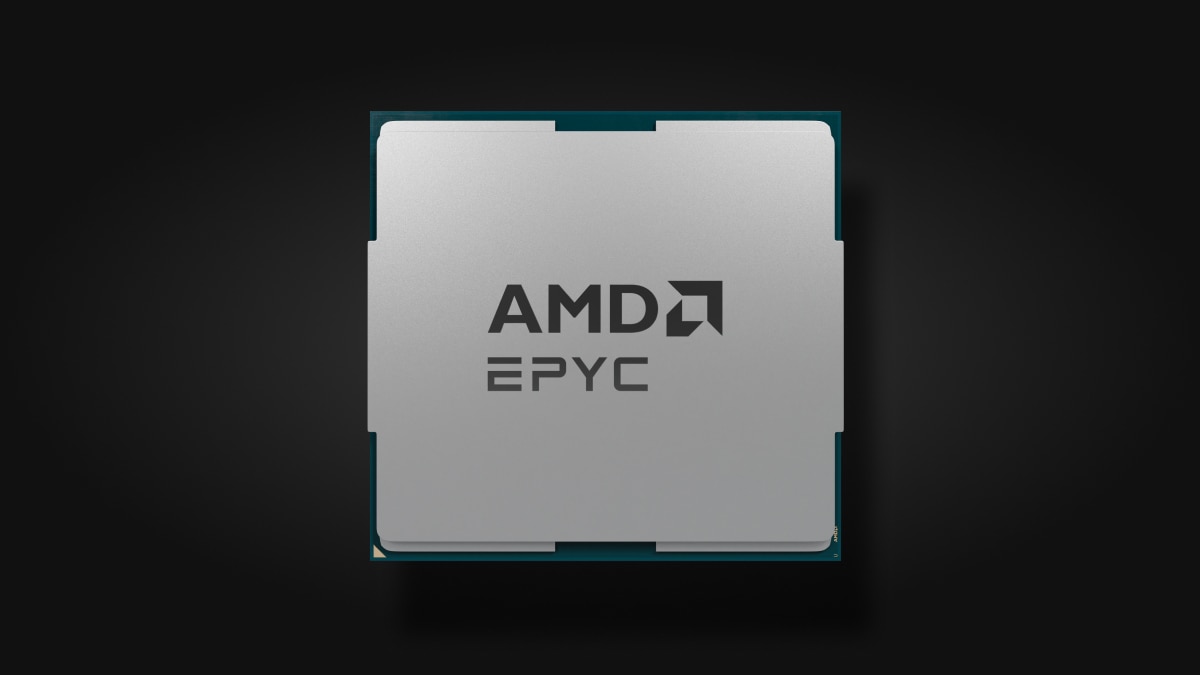
Data Center / Cloud / AI
Exceptional performance for demanding enterprise, AI, and cloud workloads.

Advanced data centers, hyperscale clouds, and supercomputers around the world run on AMD EPYC™ Server CPUs.

Breakthrough designs manufactured in the world’s most advanced fabs deliver the x86 performance, energy efficiency, and cost efficiency required for today’s AI-driven, data center demands. Choose from high-density CPUs for AI, high-frequency CPUs for low-latency workloads, and memory-optimized CPUs for database and simulation workloads.
Compare AMD EPYC Server CPUs and Intel Xeon CPUs, calculate potential greenhouse gas emissions, and estimate total cost of ownership.



A single AMD EPYC™ 9005 CPU-based server can do the work of more than eight 2019-era Intel® Xeon® Platinum servers.1
From data center consolidation to raw integer performance, 5th Generation AMD EPYC Server CPUs outmatch Intel® Xeon® processors, making them the superior choice for refreshes and new build outs.
Cloud instances powered by Arm® processors may look good on paper, but the actual cost and performance numbers may not add up. The expense of porting applications and managing multiple code bases — plus underwhelming real-world performance — can make adding Arm to your cloud an inadvisable risk.

than Arm-based AWS Graviton
Get up to 75% better performance per dollar than Arm-based AWS Graviton with AMD EPYC Server CPUs.2
In the cloud and on-premises, in large and small deployments, AMD EPYC Server CPUs offer power-competitive, cost-efficient, flexible solutions for every step of your AI journey. Compared to 6th Gen Intel Xeon 6980P, 5th Gen AMD EPYC 9965 delivers significantly more processing power.
5th Gen AMD EPYC 9965 delivers up to 1.33x more inference throughput than the 6th Gen Intel Xeon 6980P on Llama3.1-8B translation use case4
5th Gen AMD EPYC 9965 delivers up to 1.93x more throughput than 6th Gen Intel Xeon 6980P on XGBoost5
5th Gen AMD EPYC 9965 delivers up to 1.7x more general AI (TPCx-AI) throughput than 6th Gen Intel Xeon 6980P6


Yes. 5th Gen AMD EPYC Server CPUs currently have the highest core count available in x86 server processors. With 192 cores, the AMD EPYC 9965 Server CPU can support 33% more virtual CPUs (vCPUs) than the highest available core count Intel® Xeon® 6E “Sierra Forest” 144 core processor (1 core per vCPU).
When comparing 5th Gen AMD EPYC Server CPUs to Intel Xeon 6 CPUs, AMD EPYC Server CPUs offer better general computing, end-to-end AI performance, and power efficiency. In general purpose computing, AMD EPYC Server CPUs beat Xeon by up to 35%.7 For energy consumption, AMD EPYC Server CPUs are up to 66% more power efficient than Xeon.8 In end-to-end AI performance, AMD EPYC Server CPUs beat Xeon by up to 70%.9
No, it’s not difficult to migrate from Intel to AMD. Both AMD EPYC Server CPUs and Intel Xeon CPUs are built on x86 architecture. This makes it easy to migrate at the application level. To migrate virtual machines (VMs), AMD offers a VMware Architecture Migration Tool to help automate the process.
Yes, AMD EPYC Server CPUs offer excellent performance for virtual machines (VMs), databases, and other enterprise applications. 5th Gen AMD EPYC Server CPUs are a great fit for VMs due to their high core density and high performance for cloud workloads. AMD EPYC Server CPUs bring fast speeds to database workloads to support agentic AI and analytics. And with high performance for general computing and x86 compatibility, enterprise applications excel on EPYC.
Choosing an AMD EPCY Server CPU depends on your needs for performance, power efficiency, and price. The latest EPYC family offers a wide range of choices, from 8 to 192 cores and 155W to 500W. Find the best CPU for your needs using the AMD EPYC Server CPU Tools.
The world’s leading data center hardware manufacturers, including Cisco, Dell, HPE, Lenovo, Oracle, Supermicro, and others, build systems featuring AMD EPYC Server CPUs. AMD works closely with our OEM partners, software vendors, sellers, and the open-source community to deliver cutting-edge solutions.
You can choose cloud instances based on AMD EPYC Server CPUs through your preferred cloud provider, including AWS, Microsoft Azure, Google Cloud, Oracle Cloud, and others. AMD collaborates with cloud providers to ensure that AMD EYPC Server CPU-based virtual machines (VMs) deliver excellent performance and cost efficiency.





Sign up for AMD news and announcements including upcoming events and webinars.
Ask for an AMD EPYC Server CPU sales expert to contact you.